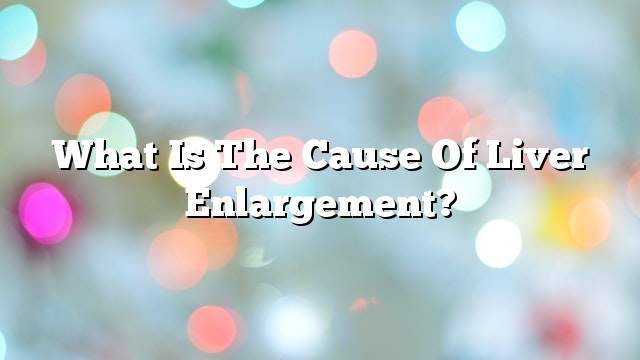Liver enlargement is not a disease and does not indicate the presence of liver disease, but indicates the presence of other diseases. The liver works hundreds of processes that help absorb food and remove toxic substances from the body. This is the basic function of the liver. Liver size increases due to the accumulation of juices and fluids in the liver or due to the obstruction of some of the surrounding channels surrounding the liver. , What are the causes of liver inflation? What signs of liver inflation? What are the ways to treat liver hyperplasia? This is what we will explain in this article.
Causes of liver disease
- Hepatitis, which is divided into three types (A, B, C).
- Drink heavily.
- Fatty liver, which increases its incidence with high weight, and is especially dangerous in patients with diabetes and cholesterol.
- High blood iron.
- Liver cancer caused by chronic hepatitis B and smokers.
- Heart failure especially in people with congenital heart defects, high blood pressure and renal failure.
- The presence of cirrhosis in the liver.
- The presence of bacterial, viral or parasitic infections.
- Immune system dysfunction.
Symptoms of liver enlargement
The incidence of liver enlargement is accompanied by several symptoms and signs:
- bleeding.
- Vomiting and nausea.
- Height in temperature.
- Acute abdominal pain.
- Inability to digest large amounts of food.
- burp.
- The appearance of a hardened block in the abdomen.
- Fever and chills.
- The appearance of jaundice; it is yellowing in the skin and whiteness in the eye.
- Greasy stools.
The diagnosis of hepatocellular hypertrophy is diagnosed by a laboratory examination of a sample of blood, stool or clinical examination. Immediate treatment should be performed if liver enlargement is detected so as not to cause complications such as: the spread of cancer, inflammation and infection to the rest of the body, so as not to cause liver failure And dysfunction in blood functions.
Methods of treatment of hepatic hyperplasia
Liver hyperplasia can be treated by:
- Take pain medication.
- Take antibiotics.
- Eat healthy, useful and light foods that contain all the important nutrients for the body.
- Follow doctor’s instructions.
- Eat all kinds of vegetables such as parsley, watercress and celery.
- Eat cereals and legumes such as: chickpeas, beans and lentils.
- Drink large amounts of water, drink anise, coriander and other natural herbs.
- Eat red raisins.
- Prepare a mixture of lemon juice, sorghum and honey; the ingredients are well mixed and eaten three times a day.
- Eat pineapple and juice for its great benefit.
